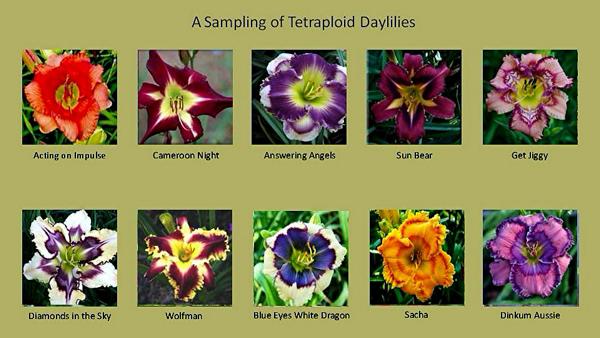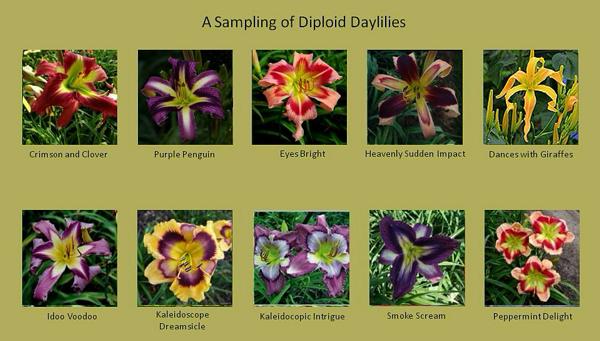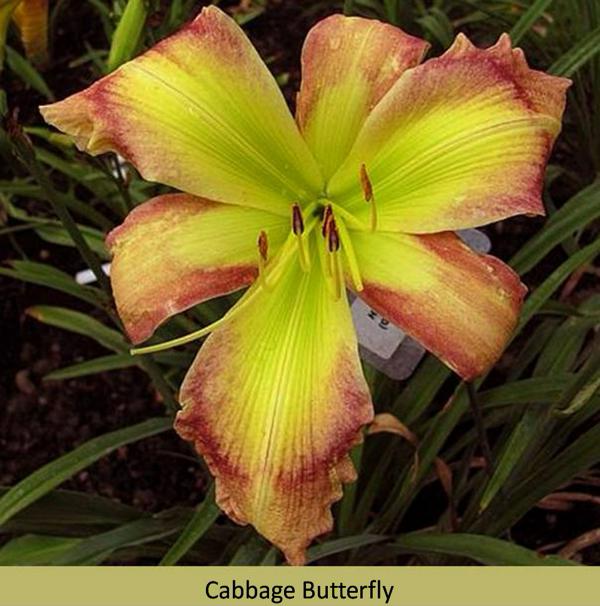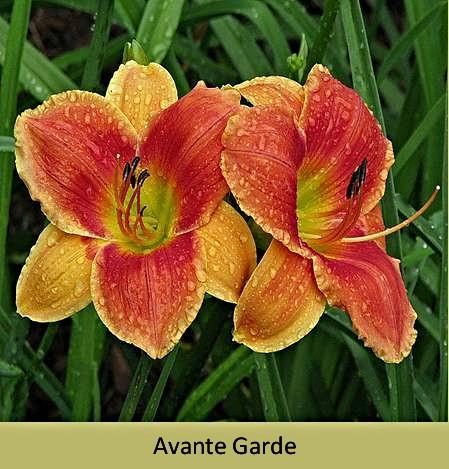The Difference Between Diploids and Tetrapoids
Jan 17, 2015
Daylilies and all other plants have a specific number of chromosomes which contain the plant's genes. Most are diploid, meaning that they have two identical sets of chromosomes in each cell. Tetraploids have four identical sets. Generally, diploids cross only with other diploids and tetraploids only with other tetraploids.
Tetraploid daylilies are generally considered to have a number of advantages over diploids. They include the following characteristics (generally):
• Flowers are larger.
• Scapes (flower stalks) are sturdier.
• Colors are more intense.
• Flowers and foliage are of heavier substance.
• Growth is more vigorous.
• Because of the increased number of chromosomes, possible combinations will be greater when breeding.
Diploids have a number of distinguishing characteristics, too:
• Flowers can be quite exquisite in color and form.
• The best pink daylilies are found among diploids.
• Spiders and double daylilies are mostly diploids.
• Hybridizers find diploid daylilies easier to cross than tetraploids.
• Diploid cultivars outnumber tetraploids. (That may change, however. Many diploid daylilies are being converted to tetraploids via a procedure using colchicine, a toxic substance extracted from Colchicum autumnale, the autumn crocus or meadow saffron.)
A Daylily Anomaly: The cultivar 'Cabbage Flower' can be successfully crossed with both diploids and tetraploids
Sometimes there is disagreement as to whether a certain cultivar is diploid or tetraploid. That's the case with 'Avante Garde' below:
The National Gardening Association Daylily Database, hands down the best daylily database on the Internet, first listed it as both diploid and tetraploid, reflecting the uncertainty about its ploidy. It is now listed as diploid. However, the Valley of the Daylilies site still lists it as tetraploid, as does the Backyard Gardener site, Nature's Melody Nursery, and Ogden Station Daylilies. Other sites avoid the issue by not listing the ploidy. The American Hemerocallis Society, considered the authority on all things daylily, lists 'Avante Garde' as diploid.



